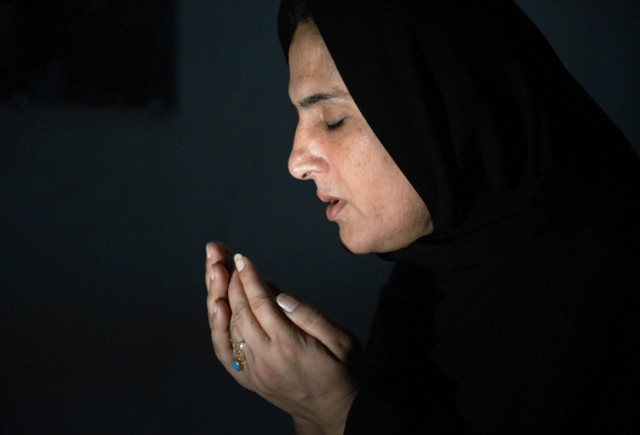Unfulfilled obligations : Transgender community endeavours to perform Umrah and Hajj
Many still do not possess X category CNIC and passport

While in most countries, the transgender community is being openly integrated into all realms of socio-political life, the one in Pakistan still struggles to perform fundamental religious obligations.
Despite the introduction of the Transgender Act of 2018, which attempted to integrate transgender persons into the society, a majority in the provincial capital is still unable to undertake religious pilgrimages to Saudi Arabia since obtaining an X category CNIC has turned out to be a heavily complicated affair, given the societal barriers and social stigma that non-binary citizens are faced with in the country’s overall ethos.
While a group of transgender persons did perform Umrah recently, a vast majority consider the prospect of travelling abroad for religious pilgrimage, utopian to say the least.
“How can we perform Hajj or Umrah when a majority of us cannot even obtain an X category CNIC, given the social stigma surrounding non-binary gender identities in our country,” informed Zanaya Chaudhry, a trans rights activist.
Such trans phobia which prevents transgender persons from obtaining X category CNIC and performing their religious duties, usually originates from the families of non-binary people, who refuse to accept the identification of an intersex or transgender child as anything other than male or female.
One such case is of Jannat Ali, a renowned trans woman from Lahore, associated with the performing arts, who resents experiencing the ostracization that transgender members of a family are subjected to. “If a child musters up the courage to reveal their true gender identity to their parents, either they convince him or her of falsely identifying as male or female or they simply banish the child from their house,” lamented Jannat.
Since a majority of the transgender persons have been abandoned by their families and are residing in communal arrangements with the guru as their household head, many activists have suggested allowing the guru to be officially registered as the father, thereby allowing trans persons with broken kinship ties to be issued an X category CNIC so that they may perform the religious pilgrimages.
However, the barriers that prevent transgender persons from fulfilling their religious obligations are not limited to their families. According to various members of the transgender community, traveling to the gulf countries including Saudi Arabia and the United Arab Emirates (UAE), is extremely challenging for transgender persons, who anticipate either being declined a visa or being deported.
As Zanaya Chaudhry, a trans rights activist, who revealed her true gender identify on her passport, shared, “I was declined a UAE visa because my passport identifies me as a trans woman.”
Privy to such discriminatory treatment by visa issuing bodies, many trans persons have started registering themselves as male or female in order to sail through immigration. This, however, rarely helps much since many trans persons report deportation when airport security discovers their false gender identity on their passports.
Furthermore, many activists claim that one reason behind the discriminatory attitude towards Pakistan’s transgender community is their lack of representation in the census which is the direct by-product of very few coming out and revealing their true gender identity for registration by NADRA.
Where the trans rights activists continue their struggle for garnering greater representation and social accessibility for their fellows, various sources holding Islamic credentials, criticize the Transgender Act of 2018 for violating Islamic principles since it allows citizens to determine their own gender, and can lead to the normalization of homosexuality, which is prohibited by the Sharia.
“While we support welfare efforts aimed at improving the living condition of the transgender community, we reject the Transgender Act of 2018, which is un-Islamic and must be amended in accordance with Islamic injunctions,” said Qibla Ayaz, Chairman of the Islamic Ideological Council.
Published in The Express Tribune, March 27th, 2023.



















COMMENTS
Comments are moderated and generally will be posted if they are on-topic and not abusive.
For more information, please see our Comments FAQ